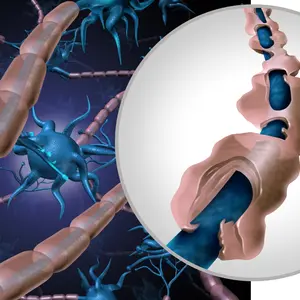

Chronic Conditions and Diseases

Chronic Conditions and Diseases
Simple Lifestyle Factors to Combat Alzheimer’s Disease
Although there is currently no cure for Alzheimer’s disease, Dr. Dean and Dr. Ayesha Sherzai, a husband and wife team who work as directors of the Alzheimer’s Prevention Program at Loma Linda University Medical Center, believe that 90% of Alzheimer’s can be prevented through a healthy lifestyle.
Although the Alzheimer’s Association states that 60% of Alzheimer’s can be prevented through a comprehensive lifestyle, the Sherzais state, “We think that they are still understating the influence lifestyle has on Alzheimer’s risk, because their idea of intensive/comprehensive intervention is a watered-down version of what we consider healthy. If people truly live a healthy lifestyle, 90% should be able to avoid Alzheimer’s within their normal lifespan.”
Their acronym to sum up the solution is NEURO:
- N is for Nutrition—Research supports a whole-food, plant-based diet for brain health, particularly as protection against Alzheimer’s and stroke.
- E is for Exercise—Exercise has been shown to guard against Alzheimer’s. One study found that an intensive aerobic exercise regimen lowered the risk of developing Alzheimer’s by as much as 40%, and another showed that a six-month resistance training program reversed cognitive impairment in 47% of patients with early dementia.
- U is for Unwind—Reducing “bad” stress is important, and so is increasing “good,” purpose-driven stress. Challenging, complex cognitive activities grow the brain and provide resilience, which has a protective effect.
- R is for Restorative Sleep—The brain needs 7-8 hours of deep sleep per night. This “cleanses” the brain and helps form and consolidate memories. Dysfunctional sleep or sleep apnea can increase the risk of dementia by up to 70%.
- O is for Optimizing Cognitive and Social Activity—Complex, purpose-driven activities that happen in real life are important for brain vitality. This includes learning a new language, leading a project, volunteering, or playing cards and games with family or friends.
According to the Sherzais, nutrition is the lifestyle factor that most significantly boosts protection from dementia, with studies showing that an optimal diet can reduce the risk of Alzheimer’s by more than half.
Although many foods are good for the brain, the Sherzais pick greens as being the best brain food. “It’s so incredibly nutritious that it can even blunt the effect of terrible foods like bacon and donuts.” Beans come in a close second, as they are a great source of protein and complex carbohydrates, the resistant starches help regulate blood sugar, and the fiber can help reduce cholesterol.
REFERENCES
Blue Zones (n.d.). The 2 foods that combat Alzheimer’s disease (& other lifestyle factors to reduce your risk of cognitive decline). https://www.bluezones.com/2019/10/the-2-foods-that-combat-alzheimers-disease-other-lifestyle-factors-to-reduce-your-risk-of-cognitive-decline/



 By
By








